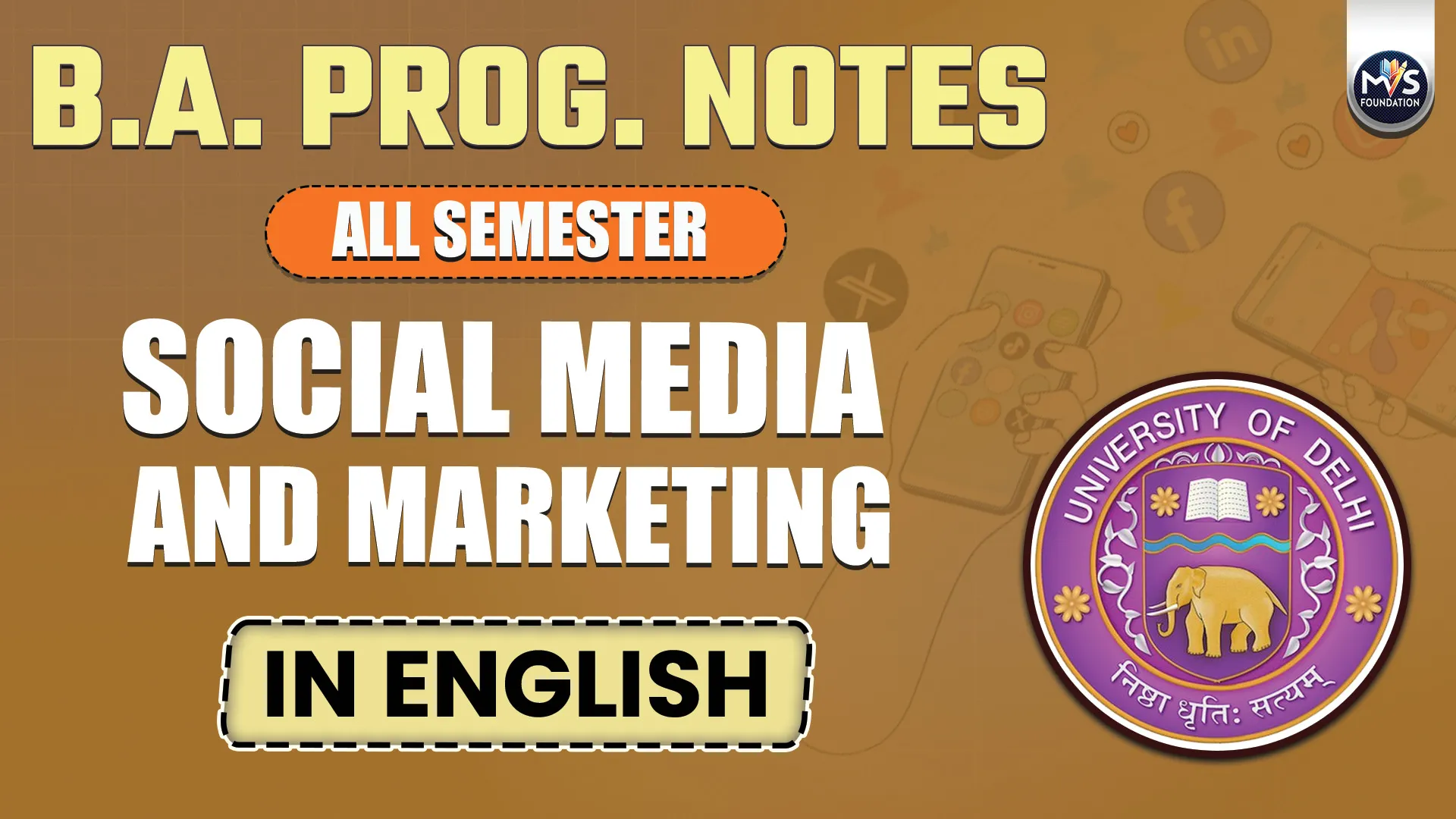
Get in Touch
We will get back to you within 24 hours.
Welcome to MVS Blog

Q-1. Define Social Media Marketing and explain its significance principles with examples also describe the various forms and impact of social media marketing.
Answer:
Introduction
Forms of Social Media: Social media comes in various forms, each with its own unique characteristics and purposes. Some common types of social media platforms include:
Social Networking: Platforms like Facebook, LinkedIn, Twitter and focus on
connecting people and building virtual networks. Users create profiles, add friends or connections, and share updates, photos, and messages.
Media Sharing: Platforms such as Instagram, YouTube, and Pinterest focus on sharing multimedia content like photos, videos, and music. Users can upload, view, and engage with visual and audiovisual content.
Forums and Communities: Websites like Reddit, Quora, and Stack, these platforms are centred around discussions on specific topics. Users can ask questions, share answers, and engage in community-driven conversations
Blogging and Content Management Systems: Platforms like WordPress, Medium, and Blogger enable individuals to create and publish their own blog posts and articles. Blogging platforms provide a space for long-form content creation and sharing.
Significance of Social Media Marketing:
1. Enhanced Brand Awareness: Social media platforms have billions of active users, providing businesses with an unparalleled opportunity to reach a wide-ranging audience and amplify brand recognition.
Example: Imagine a new ice cream shop opens in your neighbourhood. They start an Instagram page and post pictures of their colourful, tasty-looking ice creams. To make it fun, they ask people to share pictures of themselves enjoying the ice cream with a special hashtag, like #YummyScoops.
2. Choosing the Right Platforms: Social media platforms offer advanced tools for precise targeting based on demographics, interests, behaviour, and location.
Example: Imagine you love playing video games and often search online for game reviews or watch gaming videos on YouTube. One day, while scrolling Instagram or YouTube, you see an ad for a brand-new game that looks exactly like the kind you love to play.
3. Building an active Community: Social-media enables real-time interaction, allowing brands to build relationships and respond to queries or feedback quickly
Example: Starbucks engages with customers on Twitter by addressing complaints or showcasing user-generated content (UGC).
4. Paid advertising: Many social media tools are free, and paid campaigns can be run on flexible budgets, making SMM accessible to businesses of all sizes.
Example: A small bakery uses Facebook ads with a $50 budget to target local customers, increasing foot traffic.
5. Data and Insights: Social media marketing refer to the information collected about how people interact with your content, advertisements, or profile. Businesses use this data to understand their audience better and make smarter decisions to reach more people.
Example: HubSpot tracks the performance of its Linkedin campaigns to optimize future posts
Impact of Social Media
Communication and Connectivity: Social-media has transformed the way we communicate, enabling instant and global connectivity. It allows individuals to connect with friends, family, colleagues, and even strangers, breaking geographical barriers.
Information Sharing and access: Social-media has democratized information sharing, making news, opinions, and knowledge accessible to a wide audience. It has empowered individuals to become content creators and share their perspectives on various topics.
Social Media Platforms: These allow individuals to express themselves, display their skills, and shape their digital identities. Users can share their ideas, personal experiences, and creative endeavours with others.
Social Movements and activism: Social-media has significantly driven social movements, raised awareness about social issues, and mobilized communities for positive change
Conclusion
Social media marketing involves using platforms like Facebook, Instagram, and Twitter to promote products or services. It's important because it helps businesses reach a wide audience, engage directly with customers, and build brand awareness. Key principles include targeting the right audience, creating engaging content, and using analytics to measure success. Its impact includes increased brand visibility, customer loyalty, and higher sales, but it also requires careful management to avoid backlash or negative publicity.
0 Response